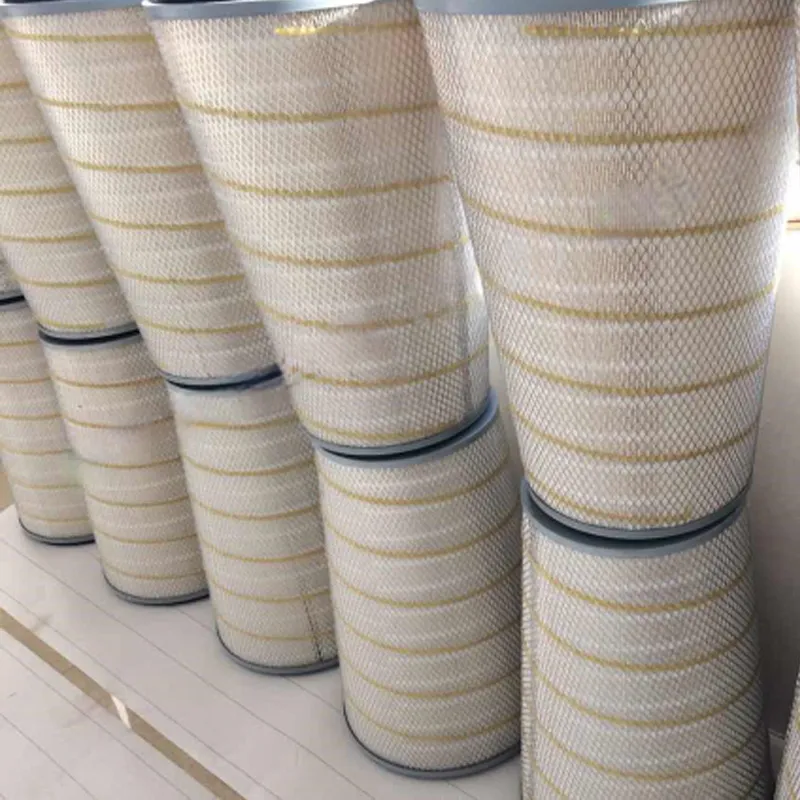 Tel:
+8615930870079
Tel:
+8615930870079
sep . 22, 2024 08:54 Back to list
antistatic filter element
The Importance of Antistatic Filter Elements in Industrial Applications
In many industrial environments, static electricity can pose significant risks to both personnel and equipment. Static discharge can lead to dust particle attraction, equipment damage, and even explosive hazards in certain conditions. To mitigate these risks, the use of antistatic filter elements has become a crucial component in the design of air filtration systems across various sectors, including manufacturing, pharmaceuticals, and electronics.
Antistatic filter elements are designed to prevent the accumulation of static charges on their surface. Traditional filter elements made from non-conductive materials can build up static electricity, attracting dust and contaminating the filtered air. This phenomenon can result in decreased air quality and increased maintenance costs due to frequent filter replacement. In environments requiring high cleanliness levels, such as cleanrooms and controlled manufacturing areas, this can lead to severe operational disruptions and quality control issues.
One of the main advantages of antistatic filters is that they are often made from conductive or semi-conductive materials. This property allows static electricity to dissipate safely, preventing the buildup of charges that could lead to unsafe conditions. For instance, in the electronics industry, the presence of static can damage sensitive components during the manufacturing process. By installing antistatic filter elements, companies can enhance the safety and reliability of their operations, ensuring that products are not compromised by environmental factors.
antistatic filter element

Moreover, antistatic filter elements can significantly enhance the efficiency of air handling systems. Static-dust attraction can cause clogs and pressure drops within filter systems, necessitating more frequent replacements and increased energy consumption. Antistatic filters contribute to a more stable airflow and lower resistance, allowing the air handling systems to operate at optimal levels. This not only extends the lifespan of the filter but also improves energy efficiency, contributing to lower operational costs.
In addition to their functional benefits, antistatic filter elements are also essential for maintaining compliance with industry standards. Many industries are subject to stringent regulations regarding cleanliness and safety, and failing to meet these standards can result in financial penalties and damage to a company’s reputation. Utilizing antistatic filters is a proactive approach to ensure compliance, demonstrating a commitment to quality and occupational safety.
The implementation of antistatic filter elements should be considered a strategic investment. While the initial costs may be higher than traditional options, the long-term savings from reduced maintenance, improved energy efficiency, and enhanced safety can outweigh these expenses. Additionally, by ensuring a cleaner and safer work environment, companies can protect their workforce and minimize the risk of costly accidents.
In conclusion, antistatic filter elements are an essential component of modern industrial operations. By controlling static electricity and improving air quality, they significantly contribute to the efficiency, safety, and compliance of various industries. As businesses continue to prioritize sustainability and efficiency, the adoption of advanced filtration solutions like antistatic filter elements will undoubtedly play a critical role in the future of industrial practices. Investing in such technologies not only protects equipment and personnel but also lays the groundwork for a more reliable and sustainable industry.
-
Types and Applications of Air Filtration CartridgesNewsJul.28,2025
-
The Role of Gas Turbine FiltersNewsJul.28,2025
-
Mastering Air Filter Cartridge UseNewsJul.28,2025
-
Advanced Turbine Filters for Modern Gas TurbinesNewsJul.28,2025
-
Cellulose Air Filter Cartridge Advantages in Dust FiltrationNewsJul.28,2025
-
Cellulose Filters for Air Particle ReductionNewsJul.28,2025

 Email:
Email:





